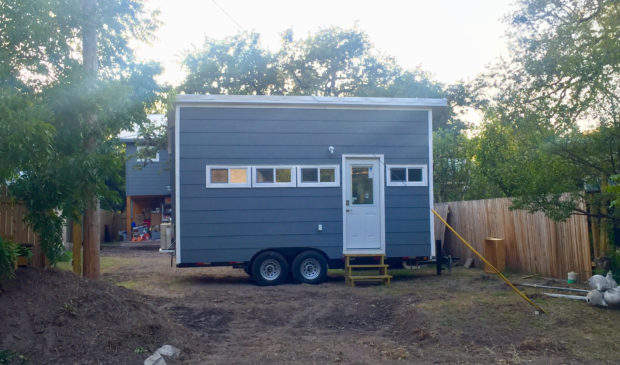Commission embraces ADUs in CodeNEXT
Monday, November 6, 2017 by
Joseph Caterine After months of debate, the Planning Commission at its Nov. 1 meeting directed staff and consultants to make the building of accessory dwelling units less constrained in the final draft of CodeNEXT.
The current code places several restrictions on the construction of ADUs, and the second draft of the new code has dropped some of those and relaxed others. But consultant Peter Park told the commission that in the third and final draft it had a choice between allowing ADUs or promoting them.
CodeNEXT 2.0 carries over existing code limits on floor area ratio, occupancy and impervious cover, as well as maintaining the short-term rental type 2 moratorium. The major new changes are that ADUs will be allowed in front of the primary structure and that there will be no parking requirements.
Commissioner Greg Anderson made a motion in response to Park’s question, saying that his main concern was affordability, and that if the third draft could make more ADUs on the ground possible then staff and consultants should push it as far as the housing type could go. Anderson emphasized that ADUs should be actively promoted in the third draft, even if some of the former restrictions ended up returning when Council made its changes.
Some commissioners expressed concerns about how the new regulations would impact compatibility around the city in general. Commissioner Karen McGraw also questioned how much a surplus of ADUs could meet affordable housing demands. “I want to know what ADUs do to homeownership. Not everybody wants to be a landlord, take out another mortgage, build another building (or) give up their backyard,” she said. “If we put two units on every single lot in the city, then you can’t buy a house unless you qualify to buy two units.”
As a compromise, Commissioner Tom Nuckols proposed a friendly amendment that the third draft should promote ADUs as long as they were context-sensitive, but Anderson rejected it. Instead, a compromise was reached that ADUs could be encouraged as long as the effort remained consistent with Imagine Austin. The motion passed 11-1-1, with McGraw dissenting and Chair Stephen Oliver abstaining.
Oliver explained that he supported the language of the motion, but that he was not okay with a review process where a vote had to be called on each hot-topic issue. “I’m not comfortable with us, meeting by meeting, going through and taking up more motions,” he said. “I see a slippery slope. I think we’re going to get into the weeds.”
Oliver said that the goal should be to save binding decisions on the central issues of the new code for the commission’s final recommendation, which they will be submitting in January, and that staff and the consultants could get a feel for how the commission felt on various issues in the meantime without formal motions.
Planning and Zoning Director Greg Guernsey tried to explain what staff wanted. “It’s helpful to know where the commission is leaning; it gives me a perspective, especially when there are diverse opinions,” he said.
Even if staff seemed okay with it, Oliver reiterated that if the commission repeated this motion-by-motion procedure that they would have “one unhappy chair.”
The Austin Monitor’s work is made possible by donations from the community. Though our reporting covers donors from time to time, we are careful to keep business and editorial efforts separate while maintaining transparency. A complete list of donors is available here, and our code of ethics is explained here.
You're a community leader
And we’re honored you look to us for serious, in-depth news. You know a strong community needs local and dedicated watchdog reporting. We’re here for you and that won’t change. Now will you take the powerful next step and support our nonprofit news organization?




